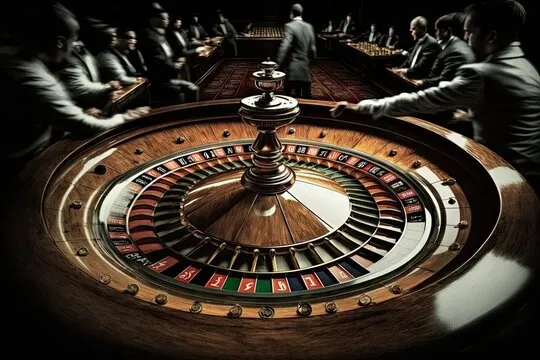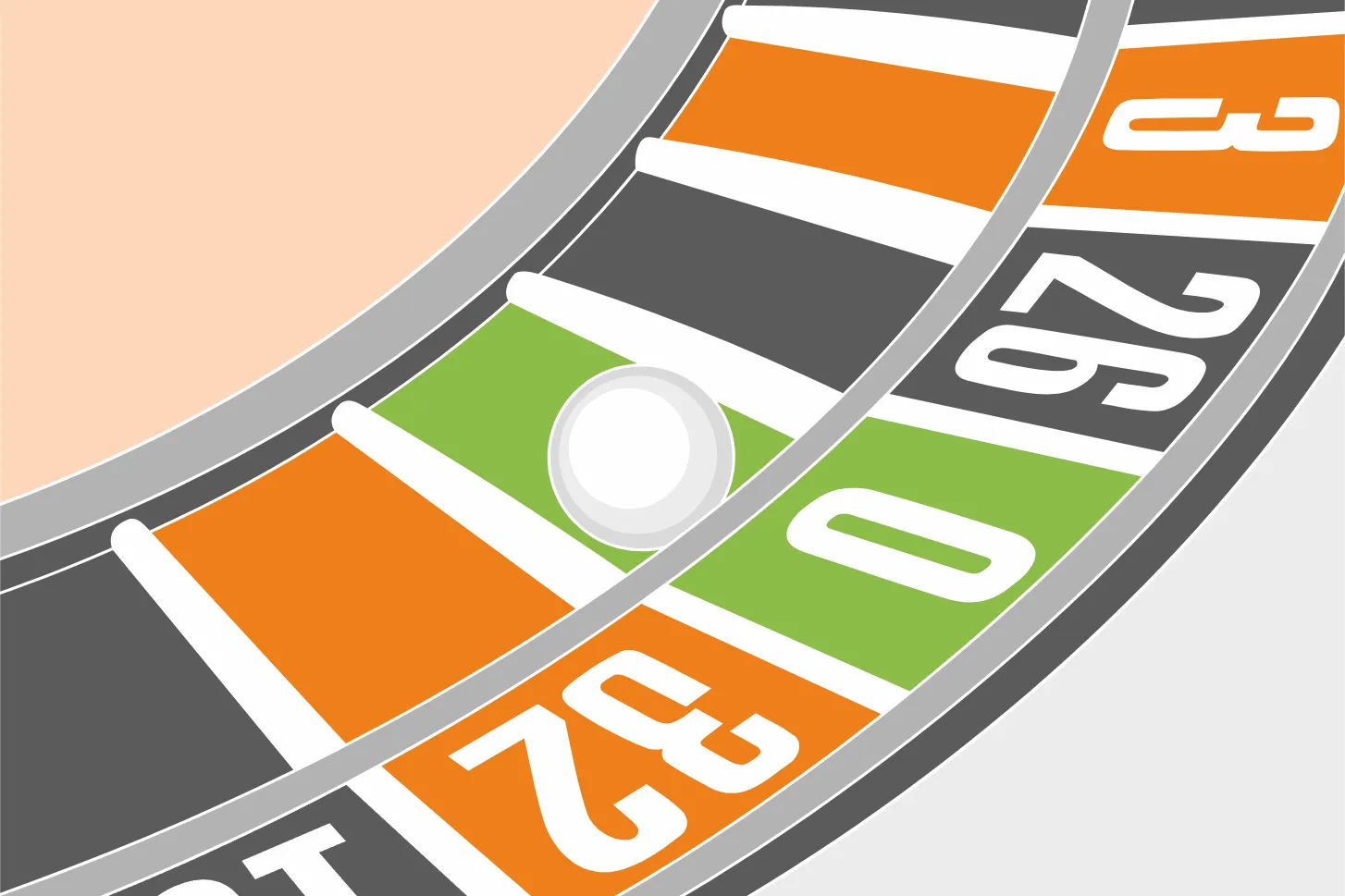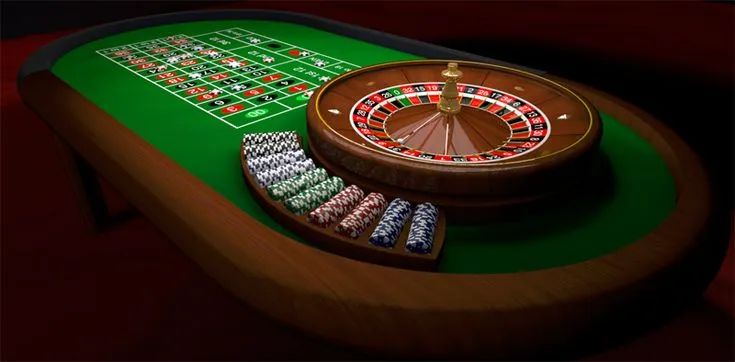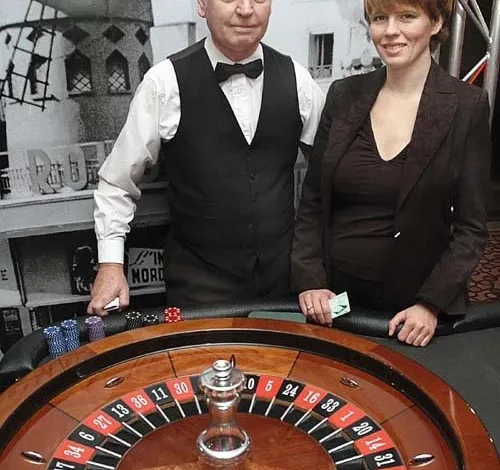
The Fascinating World of Roulette Wheel Probability
Roulette is a popular casino game played by millions of people around the world. It is a game of chance and luck, where players place their bets on a spinning wheel with numbered pockets. While the outcome of each spin is unpredictable, there is a certain mathematical probability and statistics involved in the game. In this article, we will delve deeper into the fascinating world of roulette wheel probability and explore the various factors that affect it.

Understanding Roulette Wheel Probability
To understand roulette wheel probability, it is essential to first know the basics of the game. The roulette wheel consists of 37 or 38 numbered pockets, depending on whether you are playing American or European roulette. The pockets are colored red and black, with the exception of the green pocket(s) for the numbers 0 and 00 (in American roulette). The goal of the game is to correctly predict which number or group of numbers the ball will land on after the wheel is spun.
The probability of the ball landing on a specific number or color is determined by the odds of each bet. For example, betting on a single number has lower odds compared to betting on a color or odd/even numbers. The different types of bets and their corresponding odds will be discussed further in the subsequent sections of this article.
Factors Affecting Roulette Wheel Probability
There are several factors that can affect the probability of a particular outcome in roulette. These include the type of wheel being used, the number of pockets on the wheel, and the specific rules of the game. Let’s take a closer look at each of these factors:
- Type of Wheel
As mentioned earlier, there are two types of roulette wheels – American and European. The main difference between the two is the number of pockets on the wheel. American roulette has 38 pockets, including the additional double zero (00) pocket, while European roulette has 37 pockets. This seemingly small difference has a significant impact on the probability of winning. In American roulette, the probability of winning on a single number bet is 1/38 or 2.63%, while in European roulette, it is 1/37 or 2.70%.
- Number of Pockets
Apart from the type of wheel, the number of pockets also affects the probability of winning. In addition to the green zero pocket(s), the remaining pockets are either red or black, with an equal distribution of even and odd numbers. This creates an equal chance of the ball landing on any color or odd/even number, making it a 50/50 probability. However, with the inclusion of the green zero pocket(s), the odds are slightly tilted towards the house.
- Specific Rules of the Game
The specific rules of the game can also affect the probability of winning in roulette. Some variations of the game may have additional pockets or special bets that can change the odds. For instance, in French roulette, players get half their bet back if the ball lands on the green zero pocket. This rule, known as “la partage,” reduces the house edge and improves the player’s odds of winning.
Types of Bets and Their Probabilities

Now that we have a better understanding of the factors affecting roulette wheel probability, let’s take a closer look at the different types of bets and their corresponding probabilities.
Inside Bets
Inside bets are placed on specific numbers or combinations of numbers within the numbered grid on the roulette table. These bets have higher odds but offer a higher payout compared to outside bets.
- Straight Up Bet
This is the simplest and most popular bet in roulette. It involves betting on a single number by placing your chip directly on top of it on the table. The probability of winning this bet is 1/37 or 2.70% in European roulette and 1/38 or 2.63% in American roulette.
- Split Bet
A split bet is placed on two adjacent numbers by placing your chip on the line between them. This bet has a probability of 2/37 or 5.41% in European roulette and 2/38 or 5.26% in American roulette.
- Street Bet
A street bet is also known as a “row” bet, where you place your chip on the outer corner of a row of three numbers. This bet has a probability of 3/37 or 8.11% in European roulette and 3/38 or 7.89% in American roulette.
- Corner Bet
A corner bet, also known as a “square” bet, is placed on a group of four numbers by putting your chip at the corner where they meet. This bet has a probability of 4/37 or 10.81% in European roulette and 4/38 or 10.53% in American roulette.
- Five Number Bet
This is a unique bet that is only available in American roulette. It involves betting on the numbers 0, 00, 1, 2, and 3 by placing your chip on the outer corner shared by the zero pockets and the first row of numbers. The probability of winning this bet is 5/38 or 13.16%.
- Six Line Bet
A six line bet, also known as a “double street” bet, is placed on two adjacent rows of numbers by placing your chip on the outer corner where they meet. This bet has a probability of 6/37 or 16.22% in European roulette and 6/38 or 15.79% in American roulette.
Outside Bets
Outside bets cover larger groups of numbers, offering a higher probability of winning but with lower payouts compared to inside bets.
- Red/Black Bet
This is the most popular outside bet in roulette, where you bet on the color of the pocket that the ball will land on. This bet has a probability of 18/37 or 48.65% in European roulette and 18/38 or 47.37% in American roulette.
- Even/Odd Bet
An even/odd bet is placed on whether the ball will land on an even or odd number. This bet has the same probability as the red/black bet – 18/37 or 48.65% in European roulette and 18/38 or 47.37% in American roulette.
- High/Low Bet
A high/low bet is placed on whether the ball will land on a high number (19-36) or a low number (1-18). This bet has a probability of 18/37 or 48.65% in European roulette and 18/38 or 47.37% in American roulette.
- Dozen Bet
A dozen bet is placed on one of three groups of 12 numbers – 1-12, 13-24, and 25-36. This bet has a probability of 12/37 or 32.43% in European roulette and 12/38 or 31.58% in American roulette.
- Column Bet
A column bet is similar to a dozen bet, but instead, you bet on one of three columns of numbers on the roulette table. This bet has a probability of 12/37 or 32.43% in European roulette and 12/38 or 31.58% in American roulette.
Strategies to Improve Your Roulette Wheel Probability

While roulette is a game of chance, there are certain strategies and betting systems that players use to improve their odds of winning. However, it is important to note that none of these strategies guarantee a win. They simply help mitigate losses and increase the chances of walking away with a profit. Let’s take a look at some of the most popular roulette strategies:
Martingale System
The Martingale system is one of the oldest and most well-known betting systems in roulette. It involves doubling your bet after every loss, with the goal of recouping all previous losses when you eventually win. For example, if you bet $10 on red and lose, you will double your bet to $20 on the next spin. If you win, you will have a net gain of $10, which will cover your previous loss. However, this system requires a large bankroll and carries a high risk of losing.
Fibonacci System
The Fibonacci system is based on the mathematical sequence of numbers – 1, 1, 2, 3, 5, 8, 13, 21, etc. In this system, you start by betting the sum of the first two numbers (1+1 = 2) and continue following the sequence after each loss. When you win, you move back two steps in the sequence. For instance, if you win after betting $13, your next bet will be $5. This system has a lower risk compared to the Martingale system, but it also requires a large bankroll.
D’Alembert System
The D’Alembert system is considered less risky than the Martingale and Fibonacci systems. In this system, you increase your bet by one chip after each loss and decrease it by one chip after each win. The idea behind this system is that over time, your wins and losses should even out, resulting in a small profit. However, this system also has its flaws, as it does not take into account the house edge and assumes that wins and losses are evenly distributed.
Conclusion
Roulette wheel probability is a complex subject, with various factors influencing the outcome of each spin. Understanding the different types of bets and their corresponding probabilities can help you make informed decisions when playing roulette. However, it is important to remember that no strategy or betting system can guarantee a win in this game of chance. The key is to have fun and gamble responsibly.


